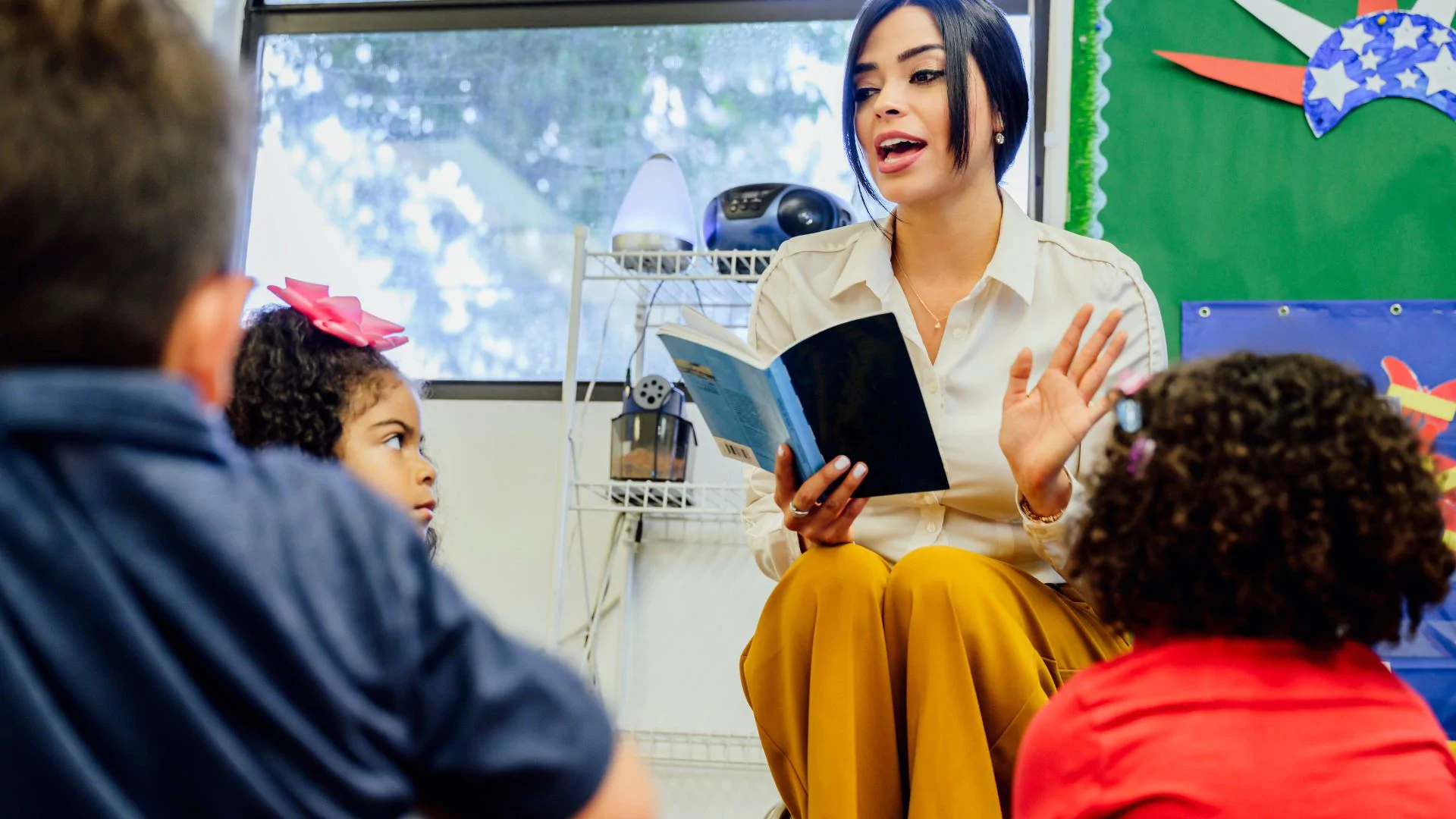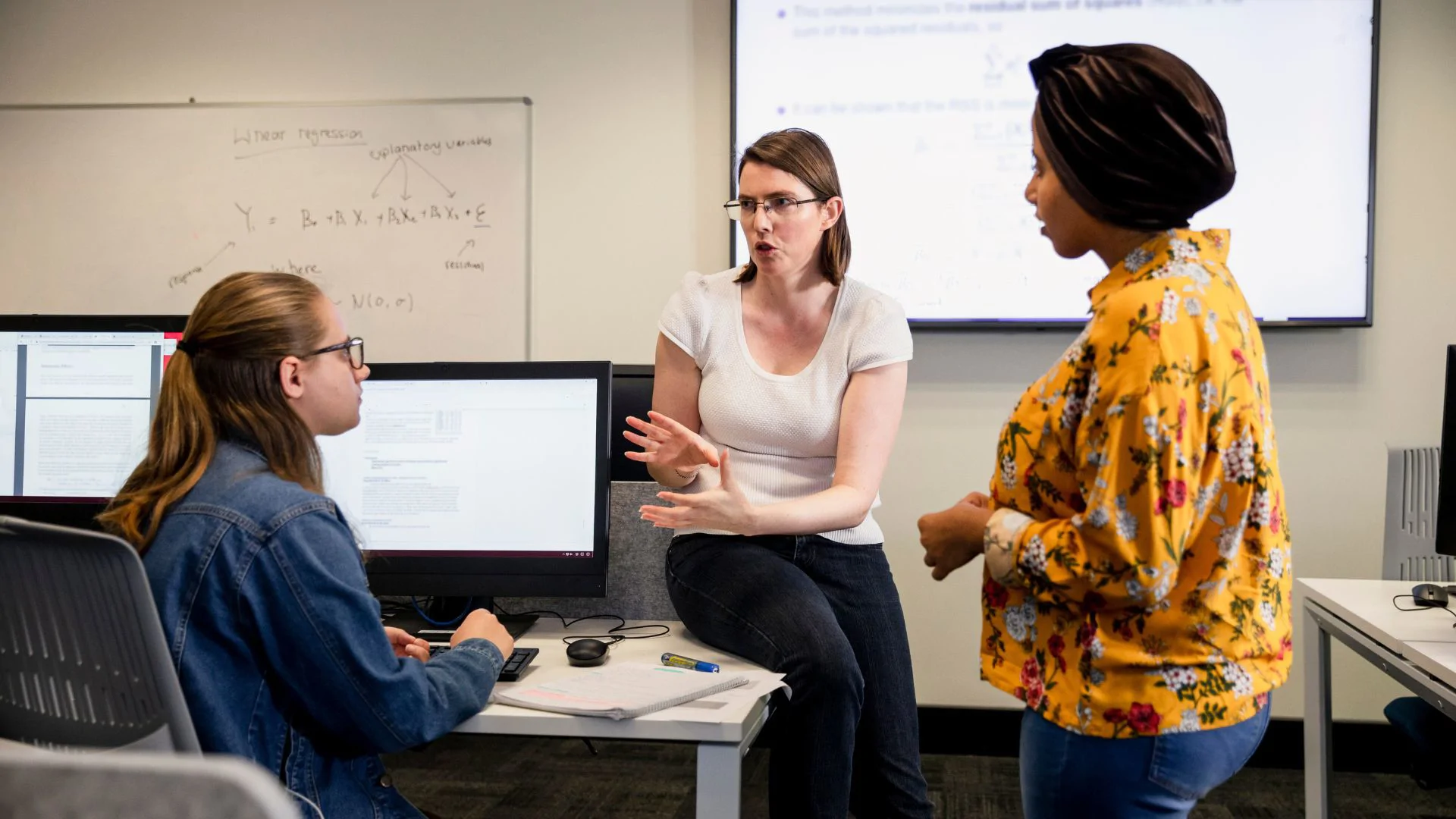How Can Schools Mark Children’s Mental Health Week?
22 Jan, 20241-2 minutes
In this blog, you will learn:
- What is Children’s Mental Health week?
- How to mark Children’s Mental Health week in schools.
- How to find and apply for the best education and SEND jobs.
Struggling to come up with ways to mark Children's Mental Health week in your school? Raising awareness for children’s mental health and wellbeing has never been more important; however, it can be difficult to discuss something as complex and crucial as mental health with children and keep them engaged and aware of its significance.
According to a mental health survey by NHS digital, one in five children and young people now have a probable mental disorder and the numbers continue to increase. Children’s Mental Health Week provides an opportunity for schools to address mental health and discuss how it can impact all aspects of a child’s life, wellbeing and safety.
In our latest blog, we’re discovering effective strategies for schools to mark Children's Mental Health Week, emphasising the importance of mental health, spotlighting individual stories, and raising awareness about the significance of mental wellbeing in children.
What is Children’s Mental Health Week?
Children’s Mental Health Week is an annual event that shines a spotlight on the importance of children's and young people's mental health. Launched in 2015 by mental health charity Place2Be, Children’s Mental Health Week is dedicated to empowering young people and aims to give them a voice.
Hundreds of schools and children take part in Children’s Mental Health Week every year and the theme for 2024 is My Voice Matters. Place2Be’s mission is to ensure that no child or young person experiences a mental health problem alone.
Why is Children’s Mental Health Week so important?
As every education professional knows, mental health is as important to a child's safety and wellbeing as their physical health. Mental health can impact on all aspects of a child’s life, including their ability to learn and forge relationships.
By taking part in Children’s Mental Health Week, schools can help ensure that children and young people feel valued, listened to and seen. By organising activities, taking part in fundraisers and promoting positive mental wellbeing, schools and educators can communicate with children better and create a safe, inclusive space that addresses and embraces mental health.
How to mark Children’s Mental Health week
Six ways to mark Children’s Mental Health week include:
- Run an informative school assembly.
- Put wellbeing posters up around the school.
- Create a welcoming safe space.
- Organise special classroom activities.
- Organise a fundraiser.
- Create home packs.
Run an informative school assembly
Beginning the week with an assembly about Children’s Mental Health Week is a great way to educate students and raise awareness of its importance. This way the Headteacher can address the whole school about what Children’s Mental Health Week means and what the plans for the rest of the week are.
Encourage students to ask questions and put forward any ideas to know that their voice matters and match with the theme for 2024’s Children’s Mental Health Week. Teachers might also organise a brief presentation to address their class to make it more appropriate, specific or relevant to the age group.
Put wellbeing posters up around the school
We advise putting up posters in classrooms, corridors and toilets to encourage children to think about their general wellbeing and to do things that make them feel good. On the poster, include tips about what children can do if they’re feeling worried, anxious or lonely and who they can talk to.
Display resources around the school to encourage conversations and remind children of the importance of children’s mental health all year, even when Children’s Mental Health Week ends. The posters can include some simple steps to feel good or just a little something to tell children that it’s OK to not feel OK all the time.
Raising awareness of Children’s Mental Health Week with posters might encourage children to come forward and talk to their friends, parents or teachers. Why not decorate the school with inspirational quotes and posters of familiar faces or characters to bring a smile to children’s faces?
Create a welcoming safe space
According to the behaviour support course provider, Proactive Approaches, a safe space at schools can reduce anxiety, stress and other negative emotions that may hinder a child or their ability to learn. Children who feel safe in their classrooms are more likely to have a positive self-image, increased self-esteem, and a greater sense of belonging.
Safe spaces can be a separate room or even a tent in the classroom that offers therapy and sensory space or just a place for children to ‘chill out.’ This space can give children the opportunity to play, talk and relax if they are feeling stressed, anxious, worried or frustrated. Creating safe spaces promotes positive mental health and wellbeing among students.
It isn’t just the safe space that should feel welcoming to students, Teachers should ensure that children are aware of the safe space that the classroom provides and that they have the option to talk about anything.
Practising listening and discussion exercises with children, might encourage them to speak to Teachers about any concerns or struggles they may have. Ask students questions such as how they are feeling, if they are worried and how you can help!
Organise special classroom activities
Organising classroom activities that give a voice to young people and promote positive self esteem is advised. There are different activities in the classroom that can inform students about mental health and provide opportunities for them to speak out, contribute and give ideas.
Why not encourage children and young people in the classroom to write gratitude letters and read them aloud? These might be things they might usually struggle to say, or just letters to make other children feel appreciated, heard and valued. These letters encourage children to connect with each other in a healthy, rewarding and meaningful way and give young people a voice.
There are also lots of children’s books that discuss mental health or struggles that children experience. Everything from ADHD, anxiety and loneliness to trauma, there are books that address mental health in a way that children can understand. Set a reading challenge- encouraging children to read children’s books on mental health and discuss their findings.
Creating honesty circles and safe spaces are key to making children feel welcomed and able to communicate. Create a positive safe space for children to discuss any concerns, worries or feelings about their mental health. Set up a weekly honesty circle in the classroom that gives students the opportunity to speak freely, honestly and to each other.
Organise a fundraiser
A great way of making children aware of the importance of mental health whilst having fun, is to organise a fundraiser. What better way to celebrate children and raise money than to host a talent show and sell tickets?
There are lots of ways to do this, schools can organise a bake sale, a sports day tournament or host a disco. You could even sell tickets to the local community so that parents, friends and relatives can enjoy the fun and help raise awareness for children’s mental health charities like Place2Be.
A fundraiser not only raises vital funds and awareness for children's mental health charities, but also involves and informs parents of the importance of valuing and ensuring children’s mental health.
An annual fundraising event would ensure that Children’s Mental Health Week is important to your school and gives students something fun and informative to look forward to. Set tasks leading up to the fundraiser such as creating posters to promote the event.
Create home packs
Don’t leave all the hard work to the Teachers, get parents and siblings involved to encourage positive thinking and discussions about mental health at home as well as at school.
You don’t want to risk losing the progress you might have made at school by giving children the chance of staying quiet or feeling worried or anxious at home.
Create activity packs and tips for all students to take home so that every week feels like Children’s Mental Health Week. Ensure that children continue learning about the importance of mental health and share their experiences with their families.
Education and SEND jobs
Looking for your next teaching job? Take a look at our teaching jobs page or why not upload your CV to be contacted about upcoming teaching career opportunities.
You can have complete confidence in our education team’s ability as the majority of our team have experience of working in the classroom. Dovetailed with years of experience working in education recruitment, they will be able to give you the best advice possible to further your career.
Education and SEND recruitment
As experts within recruitment for mainstream and SEND schools, we know how important children’s mental health is and how it can impact all aspects of a child’s learning, wellbeing and safety in the classroom.
If you’re struggling to hire, get in contact with our specialist education recruitment consultant, Jamie Heath, on 01772 954200 now to learn more about the education recruitment services available to you.
We’re here to support schools with their staffing needs, whether you are looking for a Teaching Assistant for one day, a Teacher to cover maternity leave or a Headteacher for a 12 month contract.
Meet Jamie Heath
Who is Spencer Clarke Group?
Based in the heart of Lancashire, we are an award-winning recruitment agency that innovates the industry and defies expectations. Since 2017, we have been transforming the recruitment landscape from our internal operations to the way we conduct business.
At our organisation, we believe in the importance of not only perfectly matching candidates and clients, but also prioritising their mental health, work life balance and standard of living. We also understand the importance of finding a role that has the ability to boost a candidate's salary and we love to see clients thrive with qualified candidates that we’ve placed with them.
We operate in two sectors:
In eleven specialisms:
Healthcare, Social Care & Nursing
Corporate Functions & Business Support




